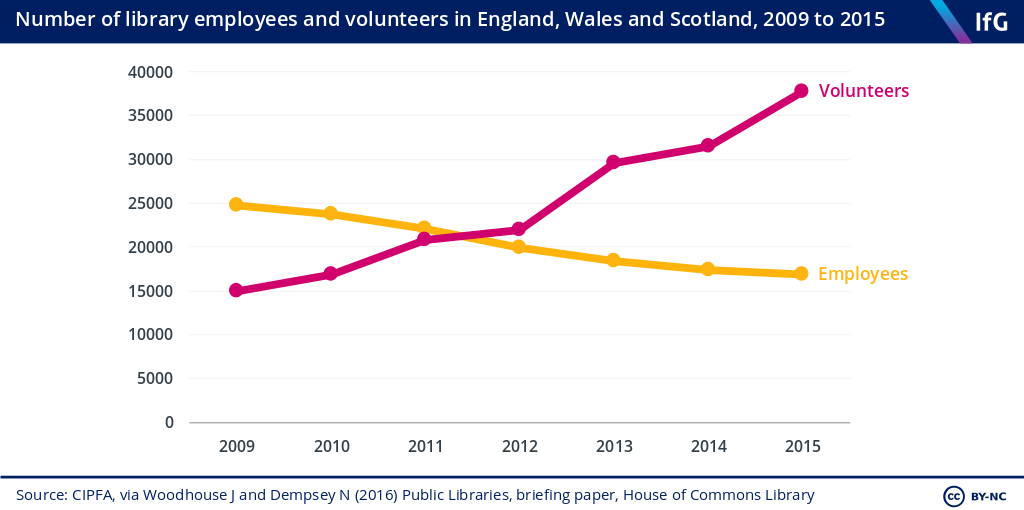Five things you should know before you vote in the local elections
Over the next five years, councillors will have to make tricky trade-offs, and manage tight financial situations.
Collecting bins, filling potholes, and providing vital services to vulnerable children and adults may be everyday, background stuff, but it matters. Dr Emily Andrews fills you in on what you need to know before May 3rd.
This Thursday, over 4,000 people will be democratically chosen to wield power over bin collections, swimming pools and the state of your local parks. Around two-thirds of them – those in upper-tier local authorities – will also be making decisions about the care of vulnerable children and adults.
Here are five things you need to consider when you’re casting your ballot.
1. Your council will probably have less money to spend in the coming years
The amount of money local authorities have to spend has fallen by almost 30% since 2010/11.This is despite growing demand for services, particularly for vital (but expensive) social care: since 2009/10, the number of looked-after children has risen 13%, and the number of people aged 85+ has risen 16%.
Spending is set to fall further this year and next. There is uncertainty about what will happen after that. But given other demands on the public purse – not least from the NHS – it is likely that fiscal constraint in local government will continue.
2. Local services will increasingly be paid for by your local taxes
If your council does plan to spend more money in the coming years, it will largely have to raise the money itself, which will mean higher council tax bills for many.
Over the last eight years, the amount of money local authorities receive from central government has fallen by 49%, according to the National Audit Office. In this context, it is not surprising that 95% of local authorities reportedly plan to increase their council tax this year – although there is a limit to how high they can push it without having a referendum.
3. Your councillors will have to keep making your money go further – and seriously prioritise
If a councillor is promising to keep a local library open, are they making clear what kind of trade-offs they will be willing to make to achieve that promise?
In order to manage with tighter budgets, local authorities have had to prioritise. That’s particularly true where councils are responsible for social care. Those authorities have largely protected social care spending, while heavily cutting spending on ‘neighbourhood services’. Spending on trading standards and libraries, for example, have both fallen by about a third since 2009/10.
Our Performance Tracker analysis (produced in partnership with CIPFA) suggests that the impact on those services – while not insignificant – has not mirrored the scale of the spending cuts: the number of libraries, for example, has fallen by 8%. Local authorities have found new ways of doing things, and squeezed efficiencies out of the private and voluntary organisations that are contracted to provide many of their services.
But councillors’ room for manoeuvre is not infinite. The Office for Budget Responsibility – the official fiscal watchdog - estimates that only 28% of local authority spending is now genuinely ‘flexible’, free from demand-led statutory obligations. And there are service pressures building up which suggest that – particularly in social care – efficiencies may not have much further to go.
Tough choices lie ahead, and it is important that local politicians are honest about that.
4. Your councillors will probably ask you to do more
Rather than close services down entirely, local authorities are increasingly asking for community support to keep services going. In libraries, the number of volunteers overtook the number of paid staff in 2012 – and the gap is continuing to widen.

In some cases, services that used to be run by councils – such as community centres and libraries – have been handed over to the community entirely. A community group in Huddersfield has recently become the first in the UK to take over a whole, 16-acre park.
5. Your councillors will probably ask you to pay more for specific services
Another way for local authorities to try to balance their books is by raising fees – such as library late fees – and charges – for services such as collecting garden waste, parking, and burial and cremation. Across non-social care services, local government income from sales, fees and charges rose 5.8% over the last six years.
Ninety-three per cent of councils are planning to increase their charges this year, according to the LGiU budget survey.
Over the next five years, councillors will have to make tricky trade-offs, and manage tight financial situations. May 3rd is your opportunity to say who you want to make these decisions on your behalf.
- Supporting document
- 5991 IFG - Performance tracker Autumn 2017 update.pdf (PDF, 2.14 MB)
- Topic
- Public services
- Keywords
- Local elections Local government
- Publisher
- Institute for Government